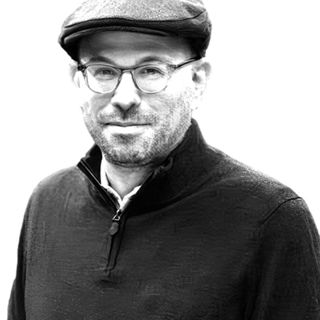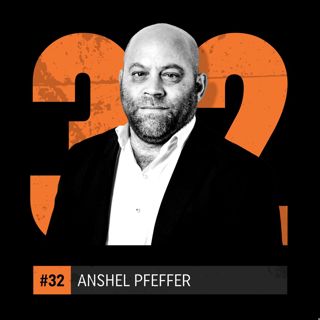
Anshel Pfeffer: 'The idea that you'll obliterate Hamas is as realistic as wanting to obliterate Chabad'
Prime Minister Benjamin Netanyahu did not surprise Anshel Pfeffer over the last 17 months of war—and that's the most disappointing part.A British-born Israeli journalist, Anshel Pfeffer is the Israel correspondent for The Economist and was a longtime senior correspondent and columnist for Haaretz. Pfeffer's 2018 book, Bibi: The Turbulent Life and Times of Benjamin Netanyahu, earned widespread and acclaim and praise. He is a central voice for understanding Israel's political and social climate, bringing decades of coverage on the country.Now, he joins Sruli Fruchter to answer 18 questions on Israel, including war crimes, Hamas' future, and the World Zionist Organization.This interview was held on March 17.
7 Huhti 1h 10min
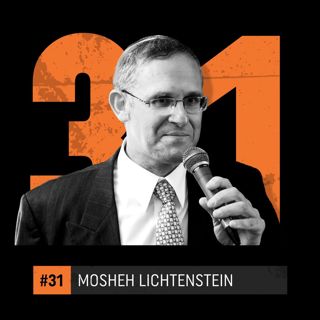
Mosheh Lichtenstein: 'Jewish values don't celebrate might'
Judaism does not value power and might, Rav Mosheh Lichtenstein says—in fact, it abhors it.Co-rosh yeshiva of Yeshivat Har Etzion, Rav Mosheh is a venerated leader in Israel's Religious Zionist world who is unafraid to call out his community's shortfalls. His statements on Israel's religious-political affairs draw ire and praise—a fact-of-life that does not discourage him.Rav Mosheh has been a raam in yeshiva since 1992, and teaches on an array of subjects within Talmud and Jewish thought in Gush Etzion. He is also the eldest son of Rav Aharon Lichtenstein.Now, he joins Sruli Fruchter to answer 18 questions on Israel, including Religious Zionism, moral failures, and US President Donald Trump.This interview was held on March 11.
31 Maalis 1h 12min
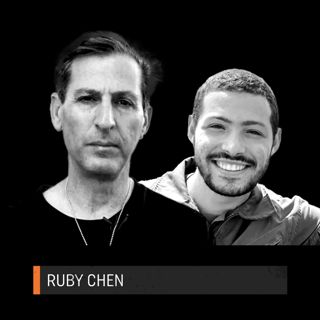
Ruby Chen: My Son is Likely a Deceased Hostage. Don't Forget Him in Gaza.
Sgt. Itay Chen was taken captive by Hamas on October 7. The IDF believes he is dead—but his family is still holding out hope.Ever since Itay was declared Missing in Action, Ruby and Chagit Chen—and the Chen family—have tirelessly fought to bring him home. Ruby and Itay are American citizens, so they hoped that would play to their advantage. In March of 2024, the IDF declared that Itay was killed on Oct. 7 and his body is being held by Hamas.Itay’s family has chosen not to sit shiva until his body is returned from the Strip for burial. They are still holding out hope—however slim, or grim—that Itay’s fate is different than the army believes. That he will return home alive.Ruby joins Sruli Fruchter to speak about his family’s reality over the last 500-plus days—fighting for Itay while continuing their lives, working with US administrations, and ensuring he is not forgotten.This interview was held on March 12.#BringItayHome on SocialMediaYouTube: https://www.youtube.com/@itaychenInstagram: https://www.instagram.com/bring_itay_homeFacebook: https://www.facebook.com/profile.php?id=61561269004170For more 18Forty:NEWSLETTER: 18forty.org/joinCALL: (212) 582-1840EMAIL: info@18forty.orgWEBSITE: 18forty.orgIG: @18fortyX: @18_forty
24 Maalis 44min
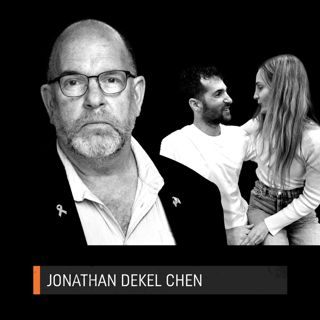
Jonathan Dekel-Chen: My Son was a Hostage in Gaza for 43 Million Seconds. He Felt Every One.
Sagui Dekel-Chen was held hostage in Gaza for 498 days—or 43 million seconds. He came home on Feb. 15.An American-Israeli citizen who was living in Kibbutz Nir Oz, Sagui left behind a pregnant wife and two daughters when Hamas took him captive in Gaza. Sagui had no idea of their fate—until two days before his release.Jonathan Dekel-Chen, Sagui's father, joins Sruli Fruchter to speak about his tireless advocacy to bring Sagui home, his family's experiences over the last 500 days, and where they go from here.This interview was held on March 10.For more 18Forty:NEWSLETTER: 18forty.org/joinCALL: (212) 582-1840EMAIL: info@18forty.orgWEBSITE: 18forty.orgIG: @18fortyX: @18_forty
17 Maalis 1h 6min
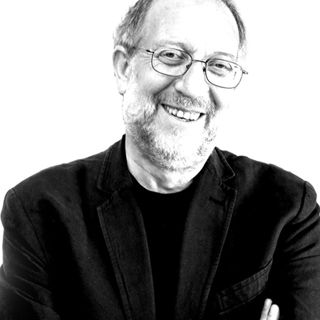
Yossi Klein Halevi: What’s Next: The Future of Liberal Zionism (18Forty Podcast Re-Release)
We don't have a new episode this week, but we invite you to revisit our 18Forty Podcast conversation with Yossi Klein Halevi, originally aired on Dec. 26, 2023. In this episode of the 18Forty Podcast, we talk to Yossi Klein Halevi, a senior fellow at the Shalom Hartman Institute, about what it means to be a Zionist and a Jew post-October 7.Since Simchas Torah, we’ve spent lots of time airing our political differences with others. What might be harder, though, is asking the uncomfortable questions about our own beliefs. Our guest today has decades of experience with this kind of soul-searching. In this episode we discuss:What is our relationship to the State of Israel, and how seriously must we take our participation in the building and rebuilding of the nation we envision?How might we maintain a sense of empathy for and kinship with the Muslim world and the Palestinian people?Why is it so important that we continue to have a Jewish state?Tune in to hear a conversation about the tensions that come with trying to uphold the rights of both Israelis and Palestinians. Interview begins at 6:54.Yossi Klein Halevi is a senior fellow at the Shalom Hartman Institute in Jerusalem. Together with Imam Abdullah Antepli of Duke University, he co-directs the Institute's Muslim Leadership Initiative (MLI), which teaches emerging young Muslim American leaders about Judaism, Jewish identity and Israel. Halevi’s 2013 book, Like Dreamers, won the Jewish Book Council's Everett Book of the Year Award. His latest book, Letters to My Palestinian Neighbor, is a New York Times bestseller. He writes for leading op-ed pages in the US, including the Times and the Wall Street Journal, and is a former contributing editor to the New Republic.References:“What Israelis Fear the World Does Not Understand” with Ezra Klein and Yossi Klein HaleviLetters to My Palestinian Neighbor by Yossi Klein Halevi Like Dreamers: The Story of the Israeli Paratroopers Who Reunited Jerusalem and Divided a Nation by Yossi Klein HaleviArab Strategies and Israel's Response by Yehoshafat Harkabi
3 Maalis 1h 16min
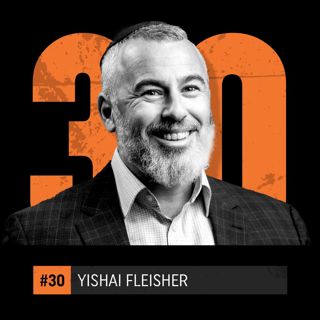
Yishai Fleisher: ‘Israel is not meant to be equal for all — it’s a nation-state’
Israel should prioritize its Jewish citizens, Yishai Fleisher says, because that's what a nation-state does.Yishai is the international spokesman for the Jewish community of Hebron, a flashpoint in the Palestinian-Israeli conflict, and a councilman for the Efrat community. His words reach audiences across the world via CNN, Piers Morgan's Uncensored, the New York Times, his own YouTube and podcasts, and more.A lawyer and rabbi, Yishai served as a paratrooper in the IDF and served in reservist duty during the Israel-Hamas War. Now, he joins Sruli Fruchter to answer 18 questions on Israel, including Jewish rights, the Land of Israel, and whether Israel should be a democracy.This interview was held on Feb. 17.Here are our 18 questions:As an Israeli, and as a Jew, how are you feeling at this moment in Israeli history?What has been Israel’s greatest success and greatest mistake in its war against Hamas?How have your religious views changed since Oct. 7? What do you look for in deciding which Knesset party to vote for?Which is more important for Israel: Judaism or democracy?Should Israel treat its Jewish and non-Jewish citizens the same?Now that Israel already exists, what is the purpose of Zionism?Is opposing Zionism inherently antisemitic?Should Israel be a religious state?If you were making the case for Israel, where would you begin?Can questioning the actions of Israel’s government and army — even in the context of this war — be a valid form of love and patriotism?What do you think is the most legitimate criticism leveled against Israel today?Should all Israelis serve in the army?Do you think the State of Israel is part of the final redemption?Is Messianism helpful or harmful to Israel?Do you think peace between Israelis and Palestinians will happen within your lifetime?Where do you identify on Israel’s political and religious spectrum, and do you have friends on the “other side”?Do you have more hope or fear for Israel and the Jewish People?
24 Helmi 1h 27min
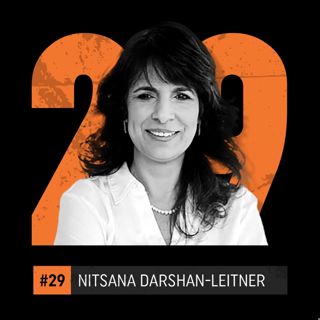
Nitsana Darshan-Leitner: 'Before Trump, I believed that Gaza had to be controlled by Israel'
Gaza can be leveled down or built up, Nitsana Darshan-Leitner says, and she wants Trump's plan to do the latter.An Israeli international lawyer and activist who has represented hundreds of terror victims in legal actions against terror organizations and their supporters, Nitsana is the head of Shurat HaDin—Israel Law Center, which combats terrorism, promotes civil rights, and actively pursues pro-Israel lawfare. Nitsana was ranked among the 50 most influential Jews in the world by the Jerusalem Post, and one of the 50 most influential Israeli women by the Israeli Forbes magazine. Now, she joins Sruli Fruchter to answer 18 questions on Israel, including international law, Gaza's future, and Trump's plan.This interview was held on Feb. 10.Here are our 18 questions:As an Israeli, and as a Jew, how are you feeling at this moment in Israeli history?What has been Israel’s greatest success and greatest mistake in its war against Hamas?How do you think Hamas views the outcome and aftermath of October 7—was it a success, in their eyes? What do you look for in deciding which Knesset party to vote for?Which is more important for Israel: Judaism or democracy?Should Israel treat its Jewish and non-Jewish citizens the same?What role should the Israeli government have in religious matters?Now that Israel already exists, what is the purpose of Zionism?Is opposing Zionism inherently antisemitic?Is the IDF the world’s most moral army?If you were making the case for Israel, where would you begin?Can questioning the actions of Israel’s government and army — even in the context of this war — be a valid form of love and patriotism?What do you think is the most legitimate criticism leveled against Israel today?Do you think peace between Israelis and Palestinians will happen within your lifetime?What should happen with Gaza and the Palestinian-Israeli conflict after the war?Is Israel properly handling the Iranian threat?Where do you identify on Israel’s political and religious spectrum, and do you have friends on the “other side”?Do you have more hope or fear for Israel and the Jewish People?
17 Helmi 1h 7min
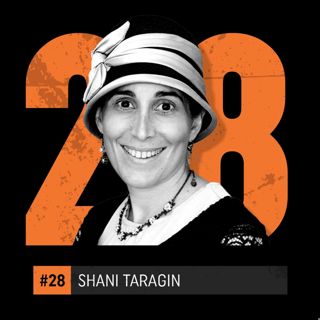
Shani Taragin: 'The ideal is for the Jewish People to live in the Land of Israel'
Israel is opening a Pandora's box by releasing Palestinian prisoners and terrorists, Shani Taragin says — but she still has not given up hope.A prominent religious leader and educator in Israel, Rabbanit Shani Taragin is impassioned by the State of Israel's future as the homeland for the Jewish People, despite what she sees as its pitfalls. She is sought out for her convictions, faith, and inspired guidance.Shani directs and teaches in Israel and worldwide, and currently serves on the advisory committee for the Mizrachi Olami Shalhevet program; as Rosh Beit Medrash for the women in Yeshiva University’s new academic program in Israel; and together with her husband, Reuven, as Educational Director for Mizrachi Olami. Now, she joins Sruli Fruchter to answer 18 questions on Israel, including the hostage deal, messianism, and the prophetic lessons for the Jewish state.This interview was held on Jan. 31.Here are our 18 questions:As an Israeli, and as a Jew, how are you feeling at this moment in Israeli history?What has been Israel’s greatest success and greatest mistake in its war against Hamas?How have your religious views changed since Oct. 7? What do you look for in deciding which Knesset party to vote for?Which is more important for Israel: Judaism or democracy?Should Israel treat its Jewish and non-Jewish citizens the same?Now that Israel already exists, what is the purpose of Zionism?Is opposing Zionism inherently antisemitic?Should Israel be a religious state?If you were making the case for Israel, where would you begin?Can questioning the actions of Israel’s government and army — even in the context of this war — be a valid form of love and patriotism?What do you think is the most legitimate criticism leveled against Israel today?Should all Israelis serve in the army?Do you think the State of Israel is part of the final redemption?Is Messianism helpful or harmful to Israel?Do you think peace between Israelis and Palestinians will happen within your lifetime?Where do you identify on Israel’s political and religious spectrum, and do you have friends on the “other side”?Do you have more hope or fear for Israel and the Jewish People?
10 Helmi 1h 25min
